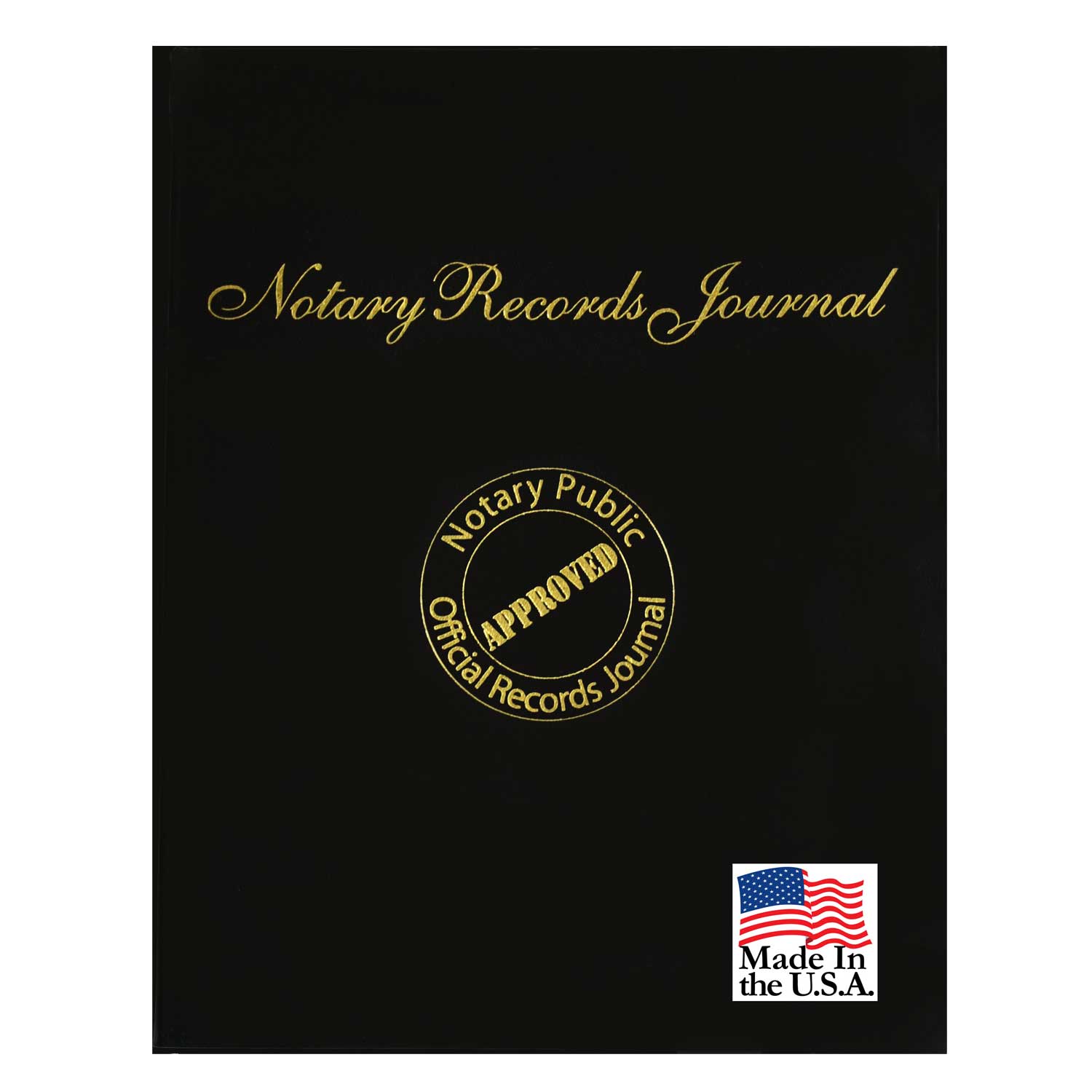New Colorado Notary Journal Requirements
With the passage of the 2018 Colorado RULONA (Revised Uniform Law on Notarial Acts), there were slight changes to the standards of care for the Colorado Notary Records Journal. You can read the actual Colorado Revised Statute below this article.
All RULONA updates will be reflected in our updated Colorado Notary State-Approved Online Course on or before July 1, 2018.
You can also order your Colorado RULONA compliant notary journal here: Notary Journal
C.R.S. 24-21-519. Journal
(1) A notary public shall maintain a journal in which the notary public chronicles all notarial acts that the notary public performs. The notary public shall retain the journal for ten years after the performance of the last notarial act chronicled in the journal.
(2) A journal may be created on a tangible medium or in an electronic format. If a journal is maintained on a tangible medium, it must be a permanent, bound register with numbered pages. If a journal is maintained in an electronic format, it must be in a permanent, tamper-evident electronic format complying with the rules of the secretary of state.
(3) An entry in a journal must be made contemporaneously with performance of the notarial act and contain the following information:
(a) The date and time of the notarial act;
(b) A description of the record, if any, and type of notarial act;
(c) The full name and address of each individual for whom the notarial act is performed;
(d) The signature or electronic signature of each individual for whom the notarial act is performed;
(e) If identity of the individual is based on personal knowledge, a statement to that effect;
(f) If identity of the individual is based on satisfactory evidence, a brief description of the method of identification and the type of identification credential presented, if any; and
(g) The fee, if any, charged by the notary public.
(4) A notary public is responsible for the security of the notary public’s journal. A notary public shall keep the journal in a secure area under the exclusive control of the notary, and shall not allow any other notary to use the journal.
(5) Upon written request of any member of the public, which request must include the name of the parties, the type of document, and the month and year in which a record was notarized, a notary public may supply a certified copy of the line item representing the requested transaction. A notary public may charge the fee allowed in section 24-21-529 for each certified copy of a line item, and shall record the transaction in the notary’s journal.
(6) The secretary of state may audit or inspect a notary public’s journal without restriction. A notary public shall surrender the notary’s journal to the secretary of state upon receiving a written request.
(7) A certified peace officer, as defined in section 16-2.5-102, acting in the course of an official investigation may inspect a notary public’s journal without restriction.
(8) If a notary public’s journal is lost or stolen, the notary public shall notify the secretary of state in writing within thirty days after discovering that the journal is lost or stolen.
(9) On resignation from, or the revocation or expiration of, a notary public’s commission, the notary public shall retain the notary public’s journal in accordance with subsection (1) of this section and inform the secretary of state where the journal is located.
(10)
(a) Instead of retaining a journal as provided in subsections (1) and (9) of this section, a current or former notary public may:
(I) Transmit the journal to the state archives established pursuant to part 1 of article 80 of this title 24; or
(II) Leave the journal with the notary’s firm or employer in the regular course of business.
(b) If notary public acts pursuant to subsection (10)(a) of this section, the notary public is no longer subject to subsection (5) of this section and shall notify the secretary of state in writing whether the notary has transmitted the journal to the state archives or the firm or employer, including the contact information for the firm or employer if the notary leaves the journal with the notary’s firm or employer.
(c) Instead of maintaining a journal as required by subsection (1) of this section, a notary public may maintain the original or a copy, including an electronic record, of a document that contains the information otherwise required to be entered in the notary’s journal if the notary’s firm or employer retains the original, copy, or electronic record in the regular course of business.
(11) On the death or adjudication of incompetency of a current or former notary public, the notary public’s personal representative or guardian or any other person knowingly in possession of the journal shall transmit it to the state archives established pursuant to part 1 of article 80 of this title 24. The person shall notify the Secretary of State in writing when the person transmits the journal to the state archives.













Leave a Reply
You must be logged in to post a comment.